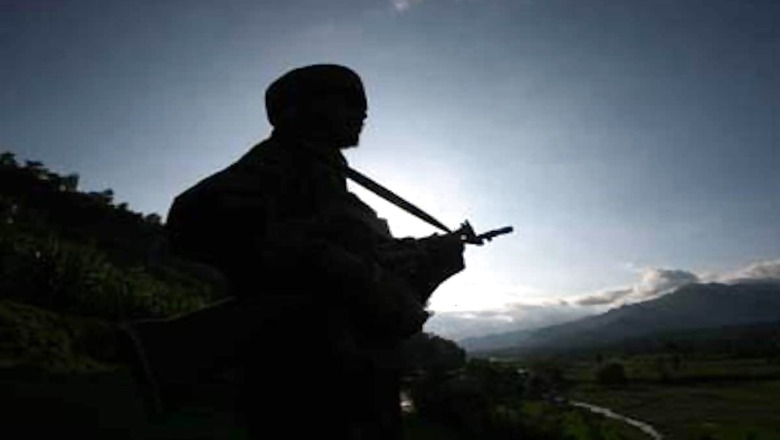
views
In the recent past, social media has been agog with posts and articles critical of certain military leaders. The triggers have been many, some examples are of being decisions taken or recommended, like pension and retirement age issues, utilisation of uniformed personnel for activities that some think are not military duties or absence of military leadership from certain hallowed events that lend the weight of symbolism to a greater cause.
Be that as it may, one considers that officers who have reached positions of command know the gravity and the gravitas of their actions, both, visible to the rank and file and those that they may think, albeit erroneously, will go unnoticed by people who they command. The aspect of a commander being a moral arbiter is perhaps getting blurred and needs a debate.
This writer was fortunate to do his staff course at a mid-level seniority in the US where a book, ‘The Challenge of Command,’ authored by Roger H Nye was compulsory reading. Besides churning our (the students’) moral and professional experiences that we had undergone, it gave insights into the challenges a commander faced as a tactician, a warrior and a strategist, besides delving into his concept of duty and the obligation of being a mentor.
The most important chapter, however, was ‘The Commander as a Moral Arbiter.’ This was a passage that made some, if not many, students attending the classes squirm as the virtues of honesty and integrity required in a Commander to be an arbiter got debated.
Oliver Cromwell is quoted in the book as having written in 1645 CE that “a few honest men are better than numbers. If you chose godly, honest men to be captains of horse, honest men will follow them.”
The Commander is the moral arbiter of the men and women he or she commands. He is also judged by the same rules that he judges his soldiers by; if anything, the expectations from him are more stringent as he is the pace setter. The Commander puts in place a moral climate – how high is the bar determines what his juniors live up to; needless to add, the higher the bar the better are the professional results. Else, fudging of training scores, deteriorating discipline (within and outside campus) and below par operational performance are the inevitable outcomes.
Militaries evolve from society and are placed on a role-model pedestal. There have been some aberrations in individual conduct at home here and the leadership needs to evaluate why this is happening despite the high emphasis on integrity and moral rectitude expected. Are these ‘normal’ human failings, irrespective of the moral climate established by Commanders? Are they a carry forward from the societal environment that personnel come from – and hence the culpability of the armed forces gets diluted? Or, are they a reflection of a lowered threshold in the Services (read Commanders) due to a dilution of acceptable moral standards and expectations?
It is not right for a veteran like me to judge the present lot of young personnel manning our armed forces. It is certainly not fair to fall back on the favourite line of a veteran, “You see, in my time, we.…” But it is equally not correct to shoot down his role as a messenger when he points to something that is so very apparent to a gaze that, though wizened with age, is sharp enough to notice that malleability may be affecting the concept of duty that the uniformed personnel are so proud of.
The disastrous result of Defence Minister Krishna Menon playing with Army hierarchy in 1962 is well known. On the other hand, the anecdote of then General Manekshaw giving short shrift to politicians who tried to interfere in affairs of the military before the 1971 war is also part of fauji folklore.
But, perhaps the finest recent example of a military leader implementing a moral fiat comes from abroad when, in a public function a year back and in full view of television cameras, the Australian Chief of Defence Staff asked his Generals to step down from the dais when their Defence Minister started answering political questions – that the profession of arms and that of politics don’t mix in a democracy was the clear message and a great example of a Commander being a moral arbiter.
Morality may have many hues and perhaps gets modified with time and societal changes. As much as society may change, for the military, however, there are certain inviolate yardsticks that ensure that its moral fibre doesn’t degenerate. A good step that happened recently was the reading of the preamble by armed forces personnel on November 26, marking Constitution Day. Setting the moral template in his span of control, as laid down by this ‘holy book,’ is every Commander’s duty; that he himself is also governed by it needs no re-telling.
(The author is a retired Air Vice Marshal. Views expressed are personal).
Read all the Latest News, Breaking News and Coronavirus News here
















Comments
0 comment